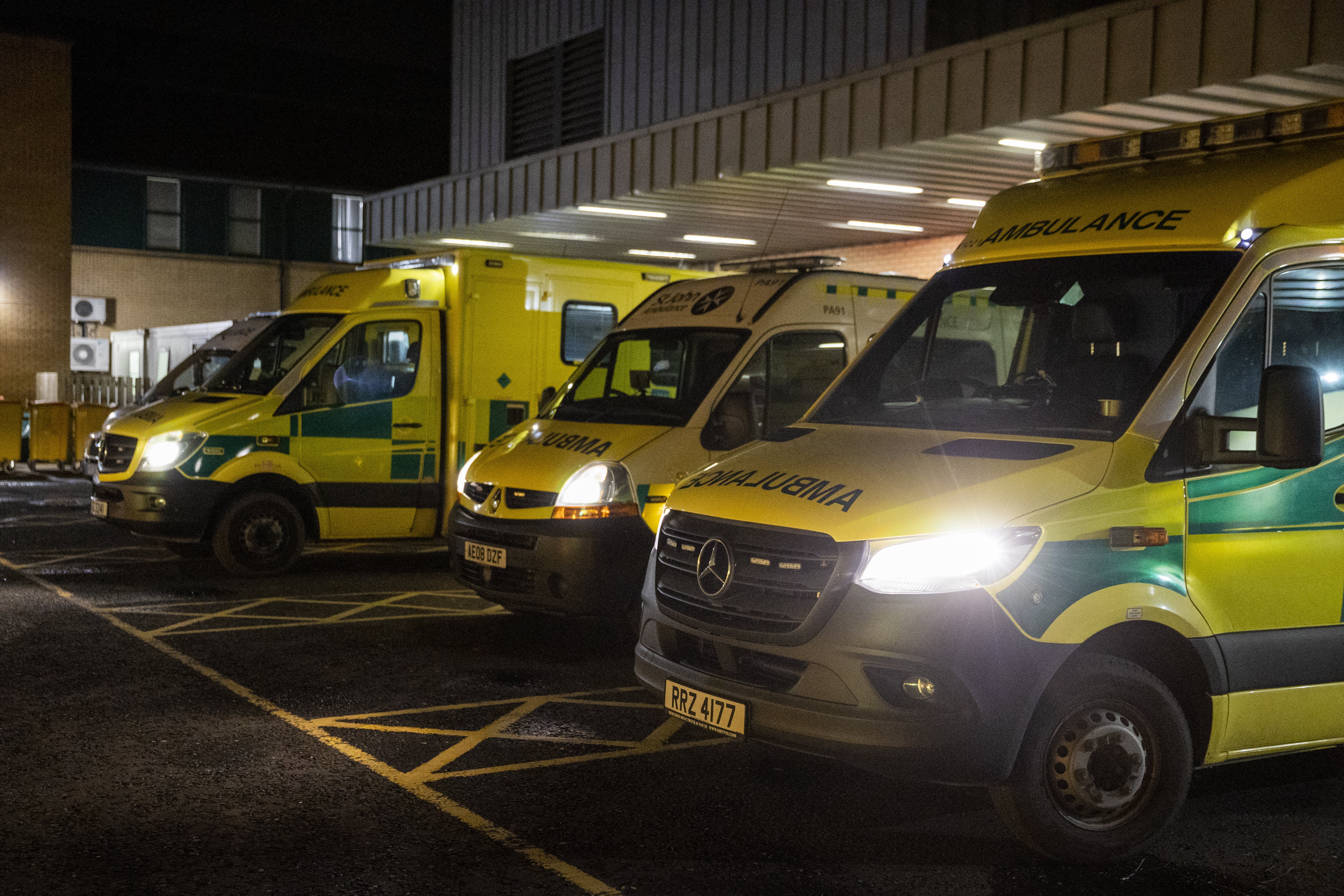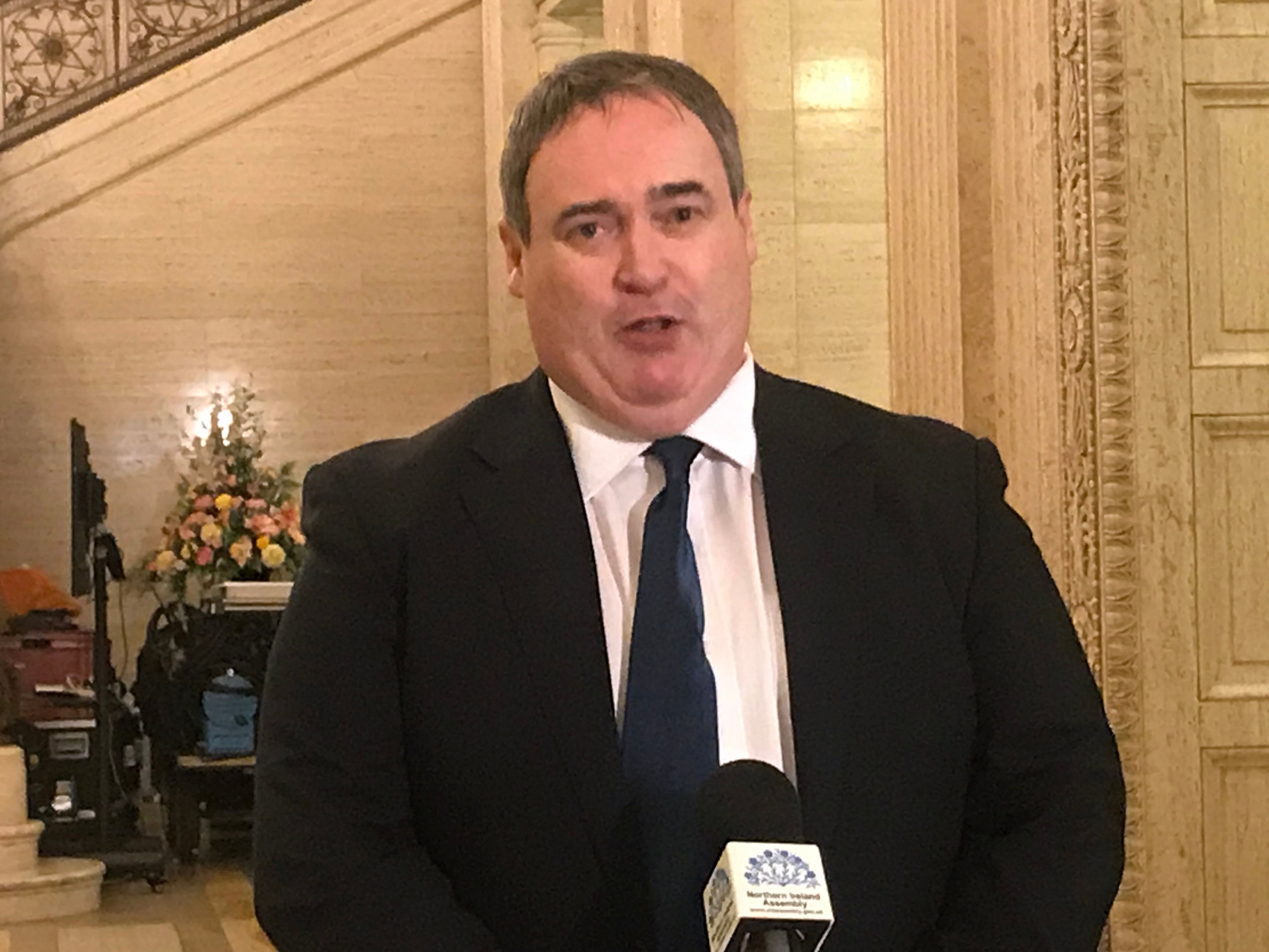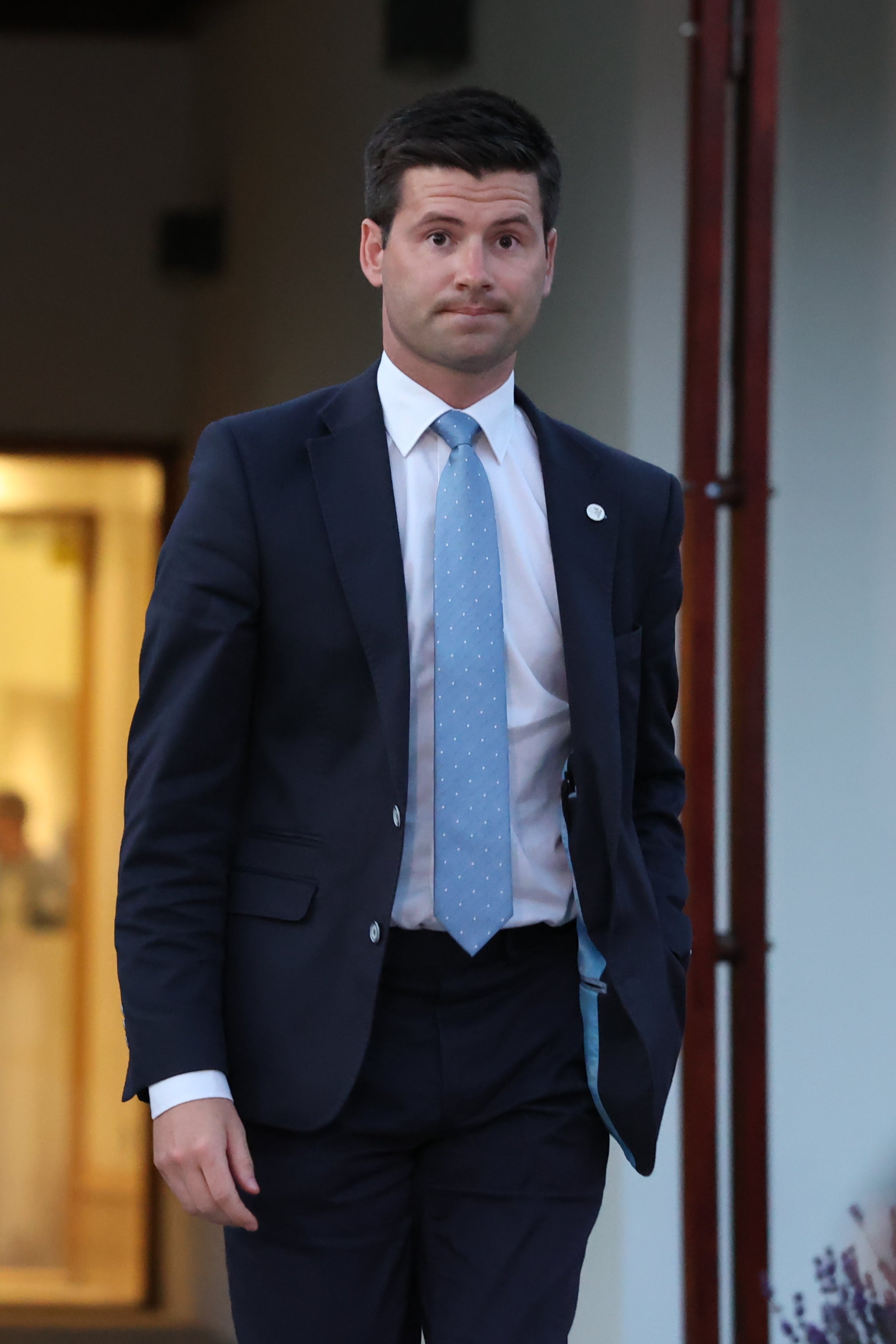
The DUP has rejected claims its move to collapse the Stormont Executive has exacerbated a crisis within Northern Ireland’s health service.
Politicians traded accusations amid the fallout from Tuesday’s events at Antrim Area Hospital, when the calling of a major incident over a lack of bed capacity was narrowly averted.
The Northern Trust declared a “potential major incident” due to severe pressures in the hospital’s Emergency Department.
At one point, 62 people needed to be admitted to beds that were not available in wards.

Tuesday’s declaration was one step away from a full major incident, which would have involved the hospital being unable to take any further patients and effectively shutting its doors.
On Wednesday, the DUP faced criticism from political rivals who claimed the problems facing the health service are intensifying as a result of the party’s move to pull first minister Paul Givan out of the Executive.
Mr Givan’s resignation, in protest at Brexit’s Northern Ireland Protocol, automatically ousted Sinn Fein deputy first minister Michelle O’Neill from office and removed the powersharing administration’s powers to make significant decisions.
Stormont cannot now strike a proposed three year budget for the period 2022-25, a spending plan that envisaged a 10% cash uplift for the Department of Health.
The other Executive parties claim DUP actions have prevented the implementation of vital health care reforms that are required to address the region’s spiralling waiting lists and relieve pressures on the fragile system.

Sinn Fein chairman of the Assembly’s health committee Colm Gildernew said the DUP’s “blocking” of a three-year budget was piling pressure on health care workers.
“Across the trusts we are seeing hospitals in crisis due to the chronic shortage of doctors, nurses and social care workers,” he said.
“The pressure on the entire sector is untenable due to the staffing crisis and the safety of both staff and patients is at risk.
“The health service requires the three-year budget, blocked by the DUP’s reckless decision to collapse the Executive, to tackle waiting lists, to recruit more doctors and nurses, to fund cancer and mental health services and to transform the health service.
“Our health service is much more important than the electoral difficulties of the DUP.
“They should get back to work and ensure that health workers have the resources needed to tackle the huge pressures across our hospitals, emergency rooms, our GP surgeries and the entire health care system.”

DUP MLA Jonathan Buckley dismissed the suggestion that the DUP move was the reason why the health service was failing.
“If we are to address the concerns that members right across this House have in relation to funding for our health service and transformation of our health service, we need to deal with the elephant in the room, which is that unless the protocol is dealt with simply there won’t be the political basis by which we can have decisions taken in this place that transform services and indeed get on with tackling waiting lists,” he told the Assembly.
Mr Buckley also made the point that there had been no cross party agreement on the draft budget before Mr Givan’s resignation.
He said the blueprint proposed by Sinn Fein Conor Murphy would have led to “massive cuts” in public services away from health, including in areas such as housing, education and police resources.
Insisting Mr Murphy’s draft spending plan was not a “panacea” for Northern Ireland’s problems, Mr Buckley said it would be more logical to strike a budget on the other side of May’s Assembly election.
“It seems counterintuitive to agree a multi-year budget at the tail end of a mandate when parties that form the next executive are yet to agree a programme for government or indeed the basis for expenditure,” he said.







